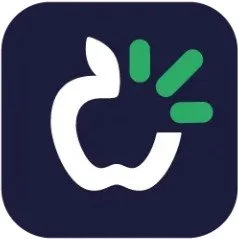Welcome back to Let's Talk AAC - a series of questions and topics for discussion. NWACS will occasionally post a question or topic with related information. Join in the conversation! Add your experiences, resources, related research, etc. in the comments so we can all learn and benefit from each other's knowledge and experience.
by Jo Ristow, MS, CCC-SLP (speech/language pathologist); NWACS blogger
reading time: 3 minutes
We are wrapping up the year with Right #15 of the Communication Bill of Rights. It reads: The right to have clear, meaningful, and culturally and linguistically appropriate communications.
This right has a lot to unpack, so let’s start with the “easiest” one - linguistically appropriate AAC. In the last few years, the diversity of languages offered on high-tech AAC devices has blossomed. Nonetheless, they still primarily lean toward Romance/European languages. There is still much work to do, but we are making progress. Resources for language-specific apps include the always-amazing Angela Moorad’s feature matching chart. It details languages available in the top 11 symbol-based apps available for iOS.
Here are the apps that offer one or more non-European languages:
Avaz
Mandarin
Czech
Danish
Dutch
English (US, CA, GB, AU)
Finnish
French
German
Icelandic
Italian
Japanese
Norwegian
Portuguese
Spanish
Swedish
Grid 3/Grid for iPad
This depends on which vocabulary set you are using, and whether it is symbol-based or text-based. Grid can be used in over 30 languages.
SuperCore, their robust, symbol-based system, is available in:
Coughdrop
Coughdrop approaches language support a little differently. It uses the device’s available languages and/or Acapela voices to support boards in:
German
Arabic
Dutch
French
Portuguese
Czech
Danish
Swedish
Greek
Italian
Japanese
Korean
Norwegian
Polish
Russian
Spanish
Turkish.
However, these take a bit of work because they use languages available on the device itself. It is also worth noting that Coughdrop can use Google Translate to “translate” boards into other languages.
Another avenue is turning to community-generated content. For example, Grid, TDSnap, and Coughdrop all have growing repositories of user-made AAC supports. These range from extremely simple to quite robust.
Now, for culturally appropriate communications. There are many facets to this, so I will mention three:
1.Availability of culturally appropriate AAC (versus just English words translated into a different language). Of course, every culture has many idioms that do not translate literally. But there are cultural patterns to language use (i.e., sociolinguistics) that govern a wide variety of aspects of communication.
volume
politeness/deference
intonation
rate of speech
turn-taking norms, etc.
This is undoubtedly an area of need in the AAC systems available on the market.
2. Provision of culturally appropriate speech language therapy assessment and intervention - delivered in linguistically and culturally respectful ways. Again, this is an area of need across speech pathology as a field. And that is intertwined with many complex issues:
racism
ableism
classism, etc.
The field itself suffers from a lack of diverse clinicians despite serving an enormously diverse client population. See: Our Clients Are Diverse: Why Aren’t We?
3. Understanding and acceptance of cultural views of disability generally. And cultural views of assistive technology more narrowly. Each culture has different ways they interpret, approach and embrace disability. Not to mention disability culture itself. These need to be integrated into the method of care delivery and decision making around goals and outcomes. Dr. Parette and colleagues have done some preliminary research into these topics, including preferences and view on assistive technology for Asian-American and Latinx families
At its core, we all have a responsibility to confront our own biases and continually learn to do better by our AAC users, full stop. We have an obligation to respect and uphold their right to culturally and linguistically appropriate communication. And the entire Communication Bill of Rights.
Further resources:
Cultural Competence Checklist: Service Delivery
Cultural Competency Quiz: Do You Know What You Don't Know?
Culturally Responsive AAC | Augmentative and Alternative Communication Studies
AAC in Culturally and Linguistically Diverse Populations: Ethical and Clinical Considerations
Related posts:










